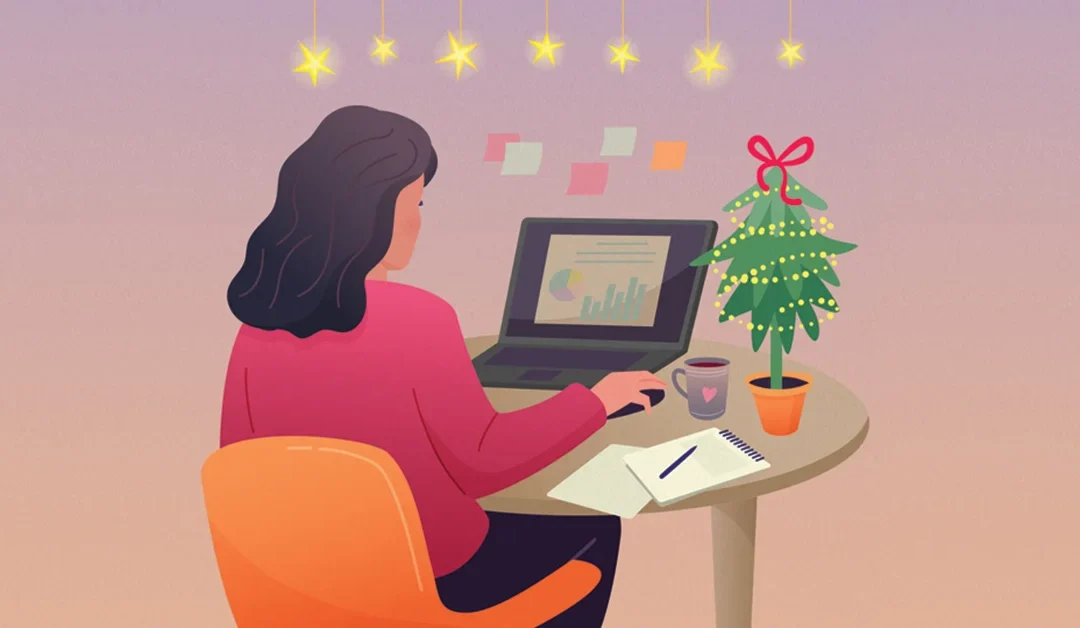As the end of another year approaches and workplaces and schools start to wind down, and family and friends gather to celebrate, it’s important to remember that perhaps not everyone is looking forward to the holiday season. While the festive season can bring feelings of joy and a sense of belonging, many Australians can find it a challenging time as they experience difficulties with family dynamics, grief and financial pressure.
The trepidation that many may be experiencing around end of year obligations and pressures is natural and valid.
Here are some of the more common stressors you may be experiencing, together with some practical tips on how to care for yourself and others.
The lure of keeping up with the Joneses
The festive period is often filled with get togethers, gifts, food and ceremony. While it can be wonderful to celebrate and bring family and friends together, there is risk of financial strain over the Christmas period with a predicted $63.9 billion forecast in Australian pre-Christmas spending according to research from the Australian Retailers Association (ARA), Roy Morgan and Salesforce[1].
With a potential for this economic pressure to continue well into 2023, now is a great time to plan for less debt and/or keeping up with the family Joneses in favour of more meaning.
Ways you can reduce the pressure include:
- Focussing on experiences you can share as a family over gift giving
- Trading restaurants for picnics
- Before you do your gift or food shopping, decide how much money you can afford to spend. Then stick to your budget. Challenge friends and family to do the same.

The mixed bag that is family
Family can be a source of great comfort but for many it can also be a place where stress, pressure and strain reside. Regardless of whether or not you have a supportive family dynamic, often bringing different people together in close proximity can create friction – especially when there is ritual, expectation and relationships to navigate.
It’s OK to welcome the thought of family and still feel overwhelmed by the prospect of their arrival. It’s also OK to miss them if they are far away, or to feel a sense of loss related to a person’s absence and the grief at their passing.
Some ways you can help yourself to navigate all the shades of familial emotion include:
- Observing boundaries with your contact such as limiting time spent together
- Limiting alcohol consumption, especially if tensions or feelings may be heightened
- Creating a ritual for those who are absent such as setting a place, burning a candle, or sharing a memory
- Increasing your self-care to release tension before and after visiting with family or revisiting grief.
It’s also OK to choose when and if you engage with family. For example, you may find it easier to send a Christmas card than to navigate a phone call.

The time spent alone
Sometimes, we’re alone for the holidays through no fault of our own.
While we can fill our time with friendship, work and activities, as we enter the festive season, the reminder our networks may not be as traditional or as robust as some can become overwhelming. The absence of work can also play a role here where the sense of fulfilment and purpose that usually sustains momentum is lost.
That doesn’t mean you should feel that isolation and loneliness in its full force.
You can look for other ways to reduce the sense of isolation by:
- Practising your favourite solo self-care ritual
- If separated by distance, keep in touch by phone, mail or email
- Looking for events, meetups, and networks of people who are in the same situation
- Consider volunteering or charity work – for example you could help organisations that provide lunch or services to those in need over the Christmas period
- Attend community celebrations such as Carols by Candlelight and neighbourhood events and picnics.

Put yourself first
There’s no denying it can often be tough to navigate the end-of-year celebrations. However, the first step to managing the impact is an awareness that you may be having a difficult time. From there, you can investigate different strategies to help yourself and those around you.
If you are feeling under pressure this holiday season, you can:
- Increase your self-care and include time in nature, exercise and naps
- Add mindfulness activities to your daily routine such as gardening, journaling, crafting and colouring
- Offsetting the holiday season social deficit with extra activities before or after
- Planning goals to look forward to once the holiday season is over.
References and Sources
[1] Australian Retailers Association (ARA), Roy Morgan and Salesforce. Research – Pre-Christmas spending October 2022 https://www.ragtrader.com.au/news/christmas-spending-to-grow-by-64b-despite-cost-of-living
- Lifeline on 13 11 14
- Kids Helpline on 1800 551 800
- MensLine Australia on 1300 789 978
- Support Act on 1800 959 500
- Suicide Call Back Service on 1300 659 467
- Beyond Blue on 1300 22 46 36
- Headspace on 1800 650 890
-
Respect on 1800 RESPECT
-
MindSpot on 1800 61 34 44
-
PANDA on 1300 726 306
Further Reading
For additional information on coping strategies this holiday season, check out our other articles such as Providing Self-Care when Helping Others, How to have a Positive Mental Health Conversation & Looking out for those who are not coping



